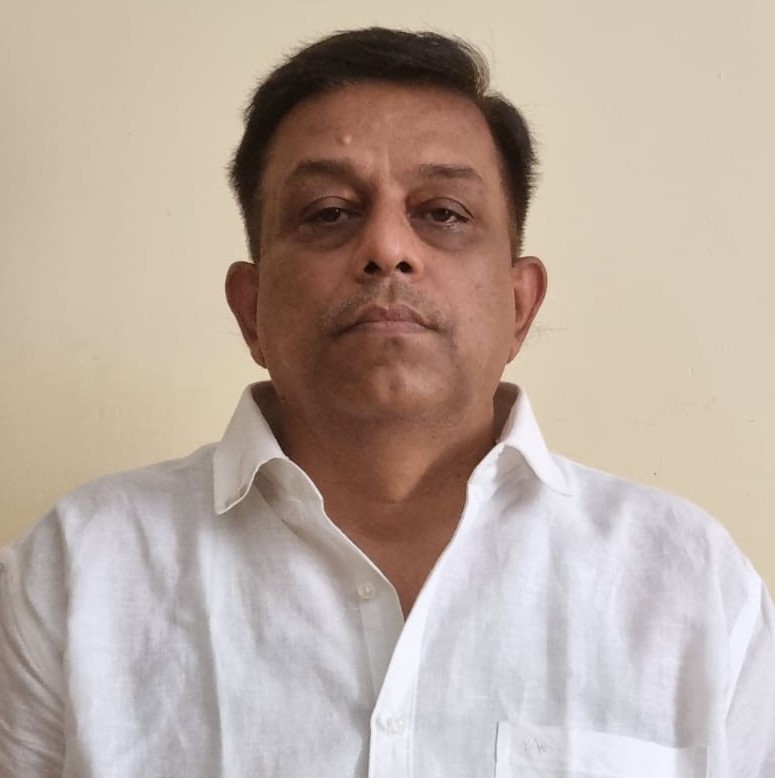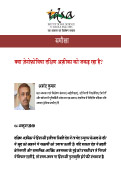Is Xenophobia Gripping South Africa?
South Africa recently witnessed violence against foreigners living in the country. The targeted foreigners were mostly migrant workers from other parts of Africa – mainly from Nigeria, Ghana, Zambia and Zimbabwe – who came to South Africa in search of better opportunities. The violence which appeared to be xenophobic has challenged the very notion of pan-Africanism. However, South Africa appears keen to repair the damage done.
The violence that broke out in late August in Pretoria was not the first against foreign migrant workers and business-owners in post-apartheid South Africa. A decade ago, in May 2008, nearly 70 people were killed in the violent protests that took place in Gauteng, Western Cape, KwaZulu-Natal and the Eastern Cape provinces. In April 2015, about seven people were killed and thousands displaced in the violence that affected several provinces. Since March 2018, a series of attacks have also taken place on foreign truck drivers mainly on the highway connecting Durban with Johannesburg. So far, over 200 people are believed to have been killed in these attacks.
In the latest round of violence, 12 people including two foreigners have been killed. The violence started when a taxi driver was allegedly shot dead by a Nigerian drug dealer in the capital city of Pretoria. In the looting and destruction that followed, more than 50 shops and several vehicles were also destroyed. Hundreds of migrant workers mainly from Zimbabwe, Nigeria and Mozambique had to take refuge in government shelters. Attacks on Nigerian workers even prompted the Nigerian Government to airlift its nationals from South Africa.
Though the nature of violence was ostensibly anti-foreigner, the majority of the people killed were locals. Most of them were killed during looting and rioting. The people responsible for violence against foreign workers have rarely been punished all these years.
South Africa is the continent’s second largest economy after Nigeria. It attracts a large number of people from different parts of Africa. Some are engaged in the business sector but a large majority provides cheap labour like many South Africans to support their families. They live in poor neighbourhoods where they are often targeted by the locals who view them as competitors for jobs and housing.
It is generally agreed that the violence which appeared anti-foreigner has much deeper roots. It is often linked to the economic problems facing the country. South Africa is regarded as the most unequal nation in the world. A quarter of its population lives in extreme poverty. The unemployment rate is close to 40 per cent. There is little change in the material condition of the black population even 25 years after the end of apartheid.1 This has led some to believe that the monopoly of the white elite over jobs and businesses needs to be broken. Black immigrants who are targets of xenophobic violence do not control the wealth of South Africa.
The violence in South Africa has been condemned across Africa. The strongest protest came from Nigeria and Ghana. Zambia’s Football Association too called off its friendly match with South Africa in protest. Botswana issued a cautionary notice to its citizens travelling to South Africa. There have also been reports of attacks on South African-owned businesses in Nigeria and Zambia. Though South Africa’s President Cyril Ramaphosa apologised for the xenophobic violence, he was jeered at by the local people when he spoke at former Zimbabwean president Robert Mugabe’s state funeral in Harare.2
The Chairperson of the African Union Commission, Moussa Faki Mahamat, has condemned the violence and destruction of property in South Africa, but has reiterated the African Union’s continued support to the South African Government in its effort to address the root causes of xenophobia.3 The United Nations High Commissioner for Human Rights, Michelle Bachelet, has also urged the South African authorities to act swiftly to protect the victims of xenophobic violence and bring to book the attackers.4
The outbreak of violence also coincided with the three-day World Economic Forum (WEF) meeting on Africa in Cape Town.5 Condemning the violence, President Ramaphosa stated that it was frustrating the government efforts to showcase South Africa as a country of equal opportunities. He asserted that foreigners have the right to own and operate businesses in the country without fearing attacks from criminals. He also assured that the government would not allow sporadic lawlessness and violence to disrupt the safety and livelihoods of millions of South Africans and the majority of foreign nationals in South Africa who are law-abiding and have the right to conduct their lives and businesses in peace.6 Recently, while acknowledge the prevalence of high unemployment rate and sluggish economy, Ramaphosa argued that it cannot be used as a pretext to target people from other nations.7
However, organisations like the Human Rights Watch (HRW) are of the view that simply condemning violence is not enough. In their view, these incidents are often spurred by lack of effective policing to protect foreign nationals and their properties.8 To deter the attackers, it is essential for the police to thoroughly investigate incidents and take action against those responsible. HRW feels that the government has done little to address the causes of these attacks except to issue a national action plan to combat xenophobia in March this year. This action plan is yet to be implemented.
Though President Ramaphosa has repeatedly apologised to the African people, the prospect of violence in future remains. While so far it has not led to any diplomatic tension between South Africa and other African nations or between South Africa and the African Union, the same cannot be ruled out in the longer run. As part of the damage control exercise, President Ramaphosa is sending special envoys to explain the government’s position. They are visiting several African countries including Nigeria, Ghana, Senegal, Tanzania, the Democratic Republic of Congo and Zambia, with the objective of repairing the country’s image.
President Ramaphosa’s special envoy Jeff Radebe, during his visit to the Nigerian capital Abuja, has profusely apologised to the Nigerian Government for the violence and stated that such incidents do not represent what South Africa stands for. He promised that the South African police would do everything possible to bring to book those involved in violence.9 A team is also expected to visit the African Union to assure the continental body of South Africa’s commitment to the ideals of Pan-Africanism and African unity.
The recent spate of violence in South Africa appears to be rooted in the country’s failure to fully transform itself – socially and economically – in the post-apartheid era. The government has been unable to address the issue of rising unemployment and widening socio-economic inequality in the country. Similarly, poor maintenance of law and order is leading to disillusionment among the population. If the government fails to address these issues in a timely and effective manner, the violence is likely to recur from time to time.
The author is currently Visiting Professor and Chair (India Studies), University of Dar-es-Salaam, Tanzania.
Views expressed are of the author and do not necessarily reflect the views of the IDSA or of the Government of India.
- 1. Katy Scott, “South Africa is the world’s most unequal country. 25 years of freedom have failed to bridge the divide,” CNN, May 10, 2019.
- 2. “Jeered over attacks, S.Africa’s president apologises at Mugabe funeral,” AFP, September 14, 2019.
- 3. “The Chairperson of the African Union Commission Moussa Faki Mahamat condemns in the strongest terms, the incidents of violence against nationals of fellow African countries in South Africa,” African Union, September 03, 2019.
- 4. “Opening statement by UN High Commissioner for Human Rights Michelle Bachelet,” United Nations, September 10, 2019.
- 5. Carol Paton, “‘The nation is in mourning,’ Ramaphosa tells business leaders ahead of WEF,” BusinessLive, September 04, 2019.
- 6. “President condemns latest public violence,” The Presidency, Republic of South Africa, September 09, 2019.
- 7. “South Africa Vows to Crack Down on Violence Against Nigerians,” The New York Times, October 03, 2019.
- 8. “South Africa: Punish Xenophobic Violence,” Human Rights Watch, September 13, 2019.
- 9. “South Africa offers ‘profuse’ apologies to Nigeria after attacks,” Al Jazeera, September 17, 2019.





